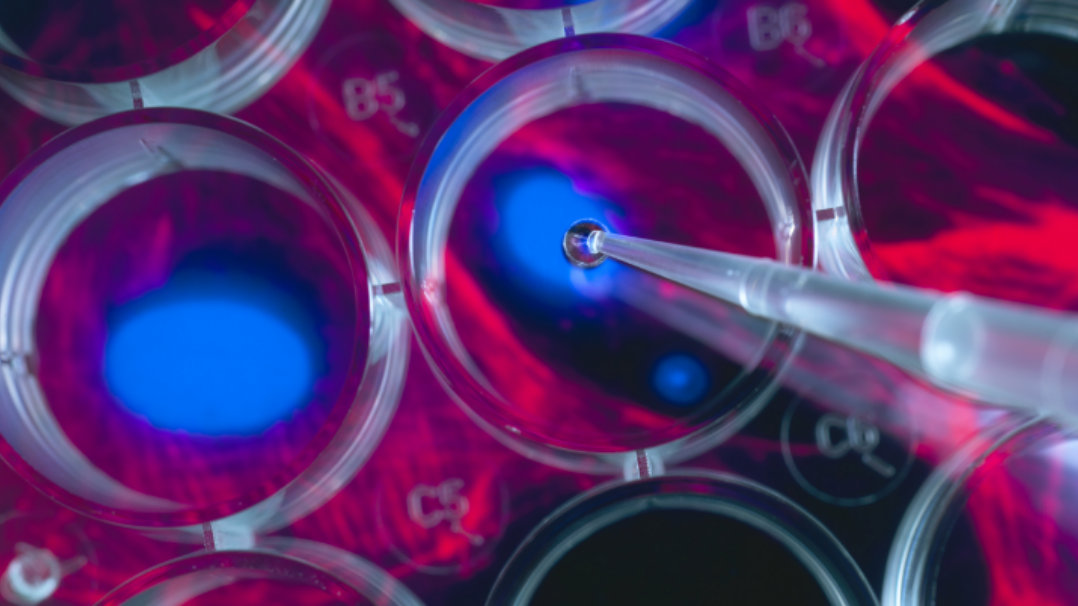How medtech helps accelerate drug discovery
Keep reading to learn more about artificial intelligence in drug discovery and development, and how it helps cut the costs of drug development and get life-saving treatments to patients faster.
The rising costs of drug discovery and development
The way healthcare professionals treat patients is rapidly changing. Precision medicine is becoming more common as researchers tackle complex health issues and pharma strives to cut the time it takes to develop life-saving drugs.
Currently, bringing a new drug to market is an extremely long and expensive process for pharma companies. According to Taconic Bioscience, a single drug took about $2.8 billion and over 12 years to develop in 2019. And after all that, 90% of candidates fail to gain FDA approval.
The good news is that artificial intelligence (AI) has incredible potential to accelerate the drug discovery and development process.
How AI streamlines the drug discovery process
The first step in creating most drugs is synthesizing a compound that can bind to and modulate a target molecule—usually a protein—involved in a disease. To find the right compound, researchers review thousands of potential candidates. Once a target is identified, researchers then screen huge libraries of similar compounds to find the optimal interaction with the disease’s protein.
Right now, it takes over a decade and hundreds of millions of dollars to get to this point. But medtech that uses artificial intelligence and machine learning (ML) can streamline the process, cutting the time and money it takes pharma to release new drugs. For instance, these technologies can:
Comb molecule libraries
The libraries screened for molecule candidates are so massive that it’s almost impossible for human researchers to review everything themselves. AI, on the other hand, can quickly identify potential target compounds in huge datasets, saving researchers hundreds of hours in the lab.
Predict compound properties
The traditional drug discovery process involves time-consuming trial and error. Medtech solutions combined with AI and ML can help speed the process by predicting the properties of potential compounds, ensuring that only those with the desired makeup are chosen for synthesis. This saves researchers from working on compounds that are unlikely to be effective.
Invent new compounds
When screening yields few promising results, AI can even brainstorm ideas for brand-new compounds that fit the desired parameters and have a higher chance of success.
How can AI aid in new drug discovery?

How is AI used in clinical trials?
According to Deloitte, only 10% of drug candidates that enter the clinical trial stage are approved by regulatory bodies. The longest and most-expensive stage of the drug creation process, clinical trials involve multiple phases of human testing, and each phase involves hundreds or thousands of participants.
The traditional linear process of randomized controlled trials (RCTs) hasn’t changed in decades and lacks the flexibility, speed, and analytical power necessary for the precision medicine model to thrive. Companies struggle to find the right participants, not to mention recruit, retain and manage them effectively. The inefficiency of the process greatly contributes to the rising costs of drug discovery and development, as well as low approval rates.
Pharma companies can use predictive AI models throughout the clinical trial stage of drug development, from design all the way to data analysis, helping to:
- Identify suitable patients by mining publicly available content.
- Assess trial site performance in real time.
- Automate data sharing across platforms.
- Provide data for final reports.
Coupling algorithms with effective tech infrastructure ensures that the constant stream of clinical data is cleaned, aggregated, stored, and managed effectively. Thus, researchers can better understand the safety and efficacy of the drug without having to manually collate and analyze the huge datasets generated by trials.
Barriers to AI adoption in drug discovery and development
Although the use of AI is becoming more widespread in the drug discovery process, there are still barriers to adoption.
Data quality
An oft-cited challenge in many industries is that poor data can quickly diminish the helpfulness of artificial intelligence and machine learning. For drug researchers, low-quality data makes medtech unreliable and, ultimately, no more accurate, helpful, or timesaving than traditional methods.
Apprehension
There’s a misconception across most industries that technology will eventually replace human workers entirely. The pharmaceutical industry is no exception. And while it’s true that AI can analyze large datasets more quickly, it’s no replacement for skilled human researchers and clinicians.
Skills shortage
Implementing medtech in the drug discovery process requires a niche set of skills. To keep the data clean and the AI effective, companies need workers with not only technical skills but also an understanding of the scientific side of the process as well, such as drug design, biology, and chemistry. It’s a tall order that companies have a tough time filling.
The future of AI in pharma drug development
AI helps researchers innovate, clinicians to meet the demands of precision medicine, and companies to get life-changing drugs to market. Every year, there are more partnerships between pharmaceutical and tech companies, and huge investments in medtech and AI startups.
We’re even seeing data sharing between big pharma companies. The Machine Learning Ledger Orchestration for Drug Discovery, or MELLODDY, is a consortium that facilitates data sharing between its dozens of members. MELLODDY uses a blockchain-based system that allows companies to share proprietary data while maintaining confidentiality. Researchers can utilize existing data to jumpstart their drug discovery process and shave years off development.
Accelerate your research and development


Follow us